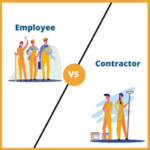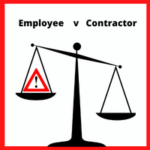Determining whether a worker is an employee or independent contractor is incredibly complex. There are numerous pieces of legislation which need to be considered in determining the nature of the relationshship.
Before engaging a worker, it is vitally important for you to correctly identify whether the worker will be engaged as an employee or independent contractor.
Common mistakes we see with Independent Contractors
- Engaging sole trader contractors when a reasonable person would consider them to be an employee.
- Treating independent contractors as employees and using employment type language when speaking with contractors.
- Assuming superannuation contributions do not need to be paid for any contractor (particularly for sole traders).
- Assuming contractors are not required to be covered by your Workers’ Compensation Insurance policy.
- Not having an appropriately drafted Independent Contractor Agreement.
Key risks of getting it wrong
Some of the risks include:
- The Fair Work Ombudsmen can prosecute employers who enter into sham contracting arrangements with their workers. Civil penalties of up to $93,900 for corporations and up to $18,870 for individuals can be imposed for each breach of the sham contracting provisions.
- Contractors who have been dismissed may argue that they were an employee and therefore come within the unfair dismissal jurisdiction.
- Where a contractor is found to be an employee that person would then be entitled to be paid all entitlements an employee receives e.g. award entitlements and paid leave entitlements.
- Claims for back payment of superannuation (including interest and penalties for late payment) where the individual is a ‘worker’ under superannuation legislation.
- Finding that the worker should have been covered by your workers’ compensation policy.
The Australian Tax Office and the Fair Work Ombudsman will investigate employers that intentionally try to avoid their obligations by misclassifying employees as contractors.
How can we help you?
We help businesses minimise risk when engaging contractors including advising on whether you have classified them correctly as an Independent Contractor; drafting and reviewing Independent Contractor Agreements. Speak to one of our experienced Employment Lawyers about your contractor arrangements.





